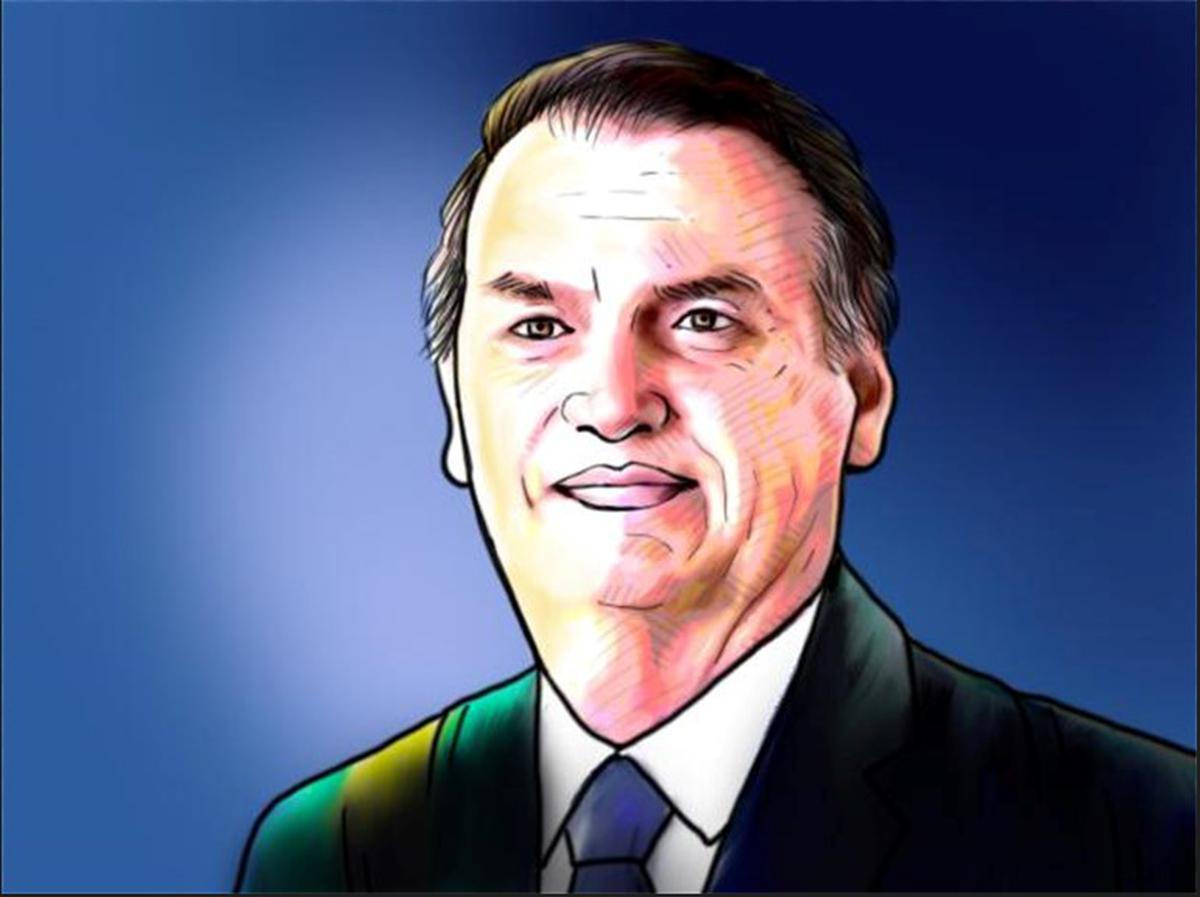
Jair Bolsonaro | The tropical populist
The Hindu
The heady cocktail of ultra-nationalism, conservatism and demonisation of opponents has ensured the far-right leader still retains a formidable support base
As Brazil goes to vote for the second round of presidential elections on Sunday, the electorate would be faced with a clear-cut choice — re-elect the far-right demagogue, populist and incumbent Jair Bolsonaro or bring back former President Luiz Inacio ‘Lula’ da Silva to power. The contrast between Lula and Mr. Bolsonaro is quite clear. The former is a union leader-turned-politician whose Workers Party governed Brazil as a moderate leftist force by instituting redistribution and welfare policies in power, even as it used negotiation and conciliation with the elite to advance such policies in a country that transitioned towards democracy after years of military dictatorship rule.
Mr. Bolsonaro, on the other hand, is an ex-military officer who has advocated right-wing and social conservative causes, invoked nostalgia for military dictatorship and ruled the country with a clear preponderance for big business but retained high spending measures to reverse flagging support for his regime. In many ways, the far-right politician fits the mould of other right-wing populists who came to power in the “democratic world” in the last decade or so — from Narendra Modi in India, Recep Erdogan in Turkey, Rodrigo Duterte in the Philippines and more closely, Donald Trump in the U.S. Indeed, Mr. Bolsonaro’s use of rhetoric and political mobilisation and his recourse to disinformation are quite reminiscent of the tactics used by the Donald Trump campaign and administration, besides the kind of coalition that had catapulted him to power in 2018 and factions of which still support his candidacy.
Mr. Bolsonaro’s endorsement of religious conservatism has provided him a ballast of support from the evangelical community in Brazil, close to a third of the total voters according to some estimates. His denunciation of environmentalism resulted in policies that removed the Amazon rainforest conservation measures, reduced spending for science and environment agencies drastically, besides policies that weakened land rights for indigenous people. These moves resulted in an accelerated deforestation of the Amazon rainforest, called the lungs of the earth, during the Bolsonaro presidency. But the measures have also solidified support for Mr. Bolsonaro among the powerful agribusiness communities.
Free market advocates and elites in big business expected Mr. Bolsonaro’s regime to pursue fiscally conservative policies, moving away from the Workers Party’s emphasis, but that was not to be, as the regime enhanced welfare spending to win back support in a COVID-19-hit country. The Bolsonaro regime presided over a time when the pandemic claimed the second highest registered deaths in any country — nearly 700,000 deaths and 3.5 million cases.
Mr. Bolsonaro, in the beginning, cavalierly dismissed the novel coronavirus pandemic, claiming that the disease was no more deadlier than the “common flu” besides lampooning the press and Opposition for exaggerating the threat of the virus besides sending mixed messages on vaccination and mask wearing and engaging in disinformation during the pandemic. Indeed, it is the regime’s failures and policies during the pandemic that resulted in a significant dent to Mr. Bolsonaro’s fortunes and allowed Lula to come back as a presidential candidate and win the first round.
But Mr. Bolsonaro also managed to belie expectations — including those of credible election pollsters — by winning slightly more than 43% of the votes in the first round and only falling short of Lula by five percentage points, indicating that the multi-class coalition that catapulted him to power has not been broken entirely.
In the run-up to the second round, Mr. Bolsonaro has borrowed and reinstated the same rhetoric reminiscent of Mr. Trump’s campaigns, including allegations that electoral fraud was rampant in Brazil’s electronic voting system. Election observers in Brazil have pointed to the deluge of fake news and disinformation in the run-up to the second round, with the Bolsonaro campaign in particular being the fountainhead of the bulk of them.













